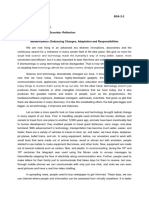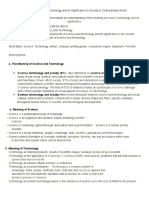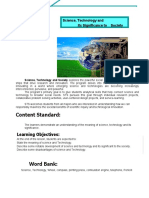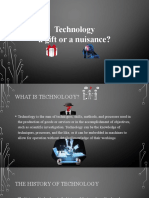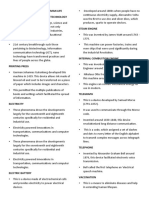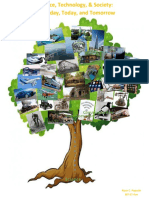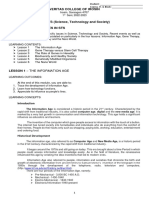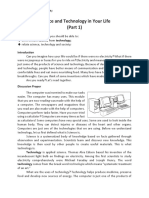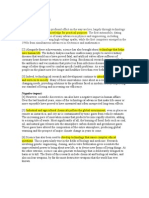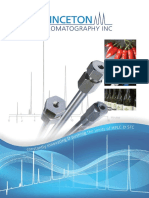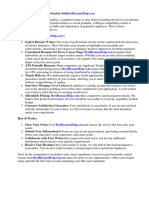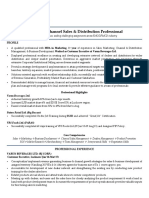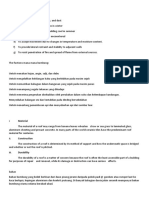21.
DEVELOPMENT OF SCIENCE AND TECHNOLOGY
Science means developing the theories which are later used in particular inventions. Science is the
systemized knowledge gained through experimentation, observation and study. Some discoveries lead to the
invention of an object, a process or a technique. Technology (a product of science) is the application of
knowledge to achieve a practical result. Man’s life is influenced by science and technology by whole his
history. Every age and civilization have their own more or less developed science; astrology, physics or
maths. All cultures invented different kinds of inventions.
In early human history, the only power was muscle power and people used primitive tools. The
earliest materials used by humans were wood, bones, horns and stones. Later bronze and iron started to be
used. The invention of the wheel was followed by the watermill and windmill. Many discoveries, such as
the fact that the Earth is not flat, were made through observation. Nicolaus Copernicus and Galileo Galilei
defended the theory of heliocentrism. Around 1440 Johannes Gutenberg invented the printing press. In
1492 Christopher Columbus discovered a new continent – America. In the 17 th century Isaac Newton
discovered the law of gravity. In the 18th century James Watt developed the steam engine. In 1876
Alexander Graham Bell invented the telephone.
In the second half of the 18th century the sudden acceleration of technical development began which
was called the Industrial Revolution. Traditional agrarian economy was replaced by machinery and
manufacturing. Hand-made products were replaced by machine-made products. In the 19 th century Michael
Faraday made the first dynamo and the electric motor. Electricity was available from the early 1880s and it
was used for electric motors in machines. Then Thomas Edison invented the electric bulb. Electricity is a
very useful form of energy which influenced and improved the standard of living. Nowadays, people can’t
imagine their lives without electricity and electrical appliances in their households, such as food processor,
washing machine, vacuum cleaner, fridge, freezer or electric cooker. They are very practical when you do
the housework, it saves a lot of time.
There are lots of other remarkable inventions and discoveries. New materials were introduced, such
as rubber, glass, leather, paper, bricks and porcelain, later new synthetic materials appeared. Nuclear energy
as well as natural gas, water power, oil and coal are current sources of energy. Scientists try to increase the
contribution of wind, tidal, solar and geothermic power. One of the greatest scientists of the 20 th century is
Albert Einstein who is famous for his theory of relativity. In 1946 the US Navy produced the first
computer called Eniac. Marie and Pierre Curie invented radium and radioactivity. Louis Pasteur is the
inventor of pasteurization. It is a process of making dairy products free of microorganisms.
Since the Lumière brothers developed the camera and the projector, film has become very influential
and profitable industry. At first people watched silent black and white films with a pianist providing music.
Later colour, sound, 3D, surround-sound and computer-generated images were introduced. There are a lot of
famous film directors, actors and actresses who influenced the development of the film: Charlie Chaplin
(silent film), Alfred Hitchcock (horror film), Walt Disney (cartoon) or Woody Allen.
Science and technology have influenced human lives in many different areas: electronics,
information technology, medicine, mass media, transport or building industry. In electronics and
information technology, machines and computers have become very important. Manual work has been
replaced by machines and computers, so working is faster and more comfortable. Nowadays, it is necessary
to know to work with computer. Lots of kinds of information are available on the Internet and you can even
communicate, sell, buy or work through the Internet.
As regards medicine, medical treatment has become less painful than in the past. It has even cured
and prevented some diseases that were considered incurable in the past. It helps prolong people’s lives and
makes the lives of the handicapped easier. In the 20th century Sir Alexander Fleming discovered the first
antibiotic drug, penicillin. Later, Watson and Crick described the structure of DNA and drugs for treating
serious diseases were discovered. Nowadays, doctors are able to cure a lot of diseases thanks to drugs and
advanced technology. Serious cases are treated in hospitals by specialists.
In comparison with the past, it is possible to communicate in many ways. During the last few
decades, we have witnessed a huge advance in information and communication technology, especially in
wireless technology. People use telephones, mobile phones or the Internet. Instead of letters, people write
SMS or e-mails more frequently because it is much faster. Besides that, many young people like chatting
through the Internet and making friends. There has always been a need to exchange information among
people. The advance of new technology enables us to deliver information very quickly. Never before has so
much information been able to be produced, stored and used so quickly. Current trends show that gadgets are
getting more and more sophisticated and young people (even children) are able to use them without
�difficulty. A computer skill is becoming a basic skill acquired early in childhood. Information and
communication technologies are also getting more and more accessible. Computers have already replaced
people in some professions. Modern life is closely connected with radio and television. Radio and television
are sources of information and entertainment and they are in every household. At any newsagent’s you can
see many kinds of newspapers and magazines. However, nowadays the Internet tends to replace classical
media. All of the main newspapers, magazines, TV and radio stations now have websites. Traditional books
are being replaced by ebooks.
Names as Carl Benz, Henry Ford, Gottlieb Daimler and Francois Peugeot changed the history of
transport. Henry Ford invented a serial constructing of cars and started with their mass production.
Transport became faster and more comfortable. When we talk about transport, it is necessary to mention
Wright brothers who made first flight with plane in 1903. Yuri Gagarin, the Soviet astronaut, was the first
human to enter the space in 1961. Later in 1969 Neil Armstrong was the first man who landed on the Moon.
Since then, people continued to explore the space using space ships and satellites.
However, not all inventions and discoveries have brought people improvement. Technology is
dependent on how people use it. Many good ideas and inventions can be misused, mainly for military
purposes such as ballistic missiles, extra powerful laser weapons, nuclear bombs and H-bombs. They have
become the most dangerous threat to the world we live in. Nuclear power is used in nuclear power plants
which generate electricity. Many organizations, such as Greenpeace, promote alternative ways of producing
electricity. The safety of nuclear power plants is debatable. They proved to be dangerous in the 1980s in
Chernobyl (the Ukraine), where a massive nuclear explosion put the rest of Europe in danger, and in 2011 in
Fukushima in Japan. Besides that, other problems are consumer society, addicted people and violence.
Technology has created a consumer lifestyle and materialism, the opposite extreme of poverty. People are
becoming more and more busy, nervous and indifferent. They consider material things, money and success
more important than moral values. They use technology for their comfort and forget other people who may
need their help. Besides that, there are people like hackers who use break into computer system, make
computer virus and steal private and secret information about people or companies. Another form of bullying
– cyberbullying (using electronic forms of contact) - has appeared recently and it is a problem especially
among children and young people. Improper use of technology can also have negative effects on the
environment and our health. The result is pollution of the nature and the rising number of civilizational
diseases - asthma, diabetes, allergies (food allergy, dust allergy, insect sting allergy, hay fever allergy, dog or
cat allergy) migraine, hypertension.
Both science and technology can contribute to solving environmental problems. In the future, the
main aim will be to use technology to find alternative energy sources, to reduce all kinds of pollution, to find
ways how to feed the increasing number of people, to discover medicine against fatal diseases. Technology
is developing very quickly and the future will bring many changes. Means of transport will be more reliable,
faster and comfortable. Travelling by space ships will probably become available for common people.
Moreover, people will advance in genetic engineering and people will eat genetically modified food. In
education teachers will be replaced by computers or teaching machines. Perhaps, children will learn at home,
not at school. Children will spend more their free time with mobile phones or computers. Young graduates
and educated people will continue to go abroad to find better-paid jobs. This phenomenon, called the brain
drain, presents a serious loss for our country and is caused by a lack of job opportunities and low salaries.
� 21. QUESTIONS
1. Define the terms science and technology and explain their importance for mankind.
2. Talk about the early history of scientific development, including the most significant
inventions and discoveries before the Industrial Revolution.
3. Compare the standard of living before and after the Industrial Revolution.
4. What do you know about the development of film industry?
5. How did materials change throughout human development?
6. What inventions contributed to the development of information technology and
communication?
7. What advances have been made in travelling?
8. Present remarkable milestones and important personalities in medicine, agriculture, and
manufacturing.
9. What are the current and future energy sources?
10. What invention or discovery is the most important for you and why?
11. Give examples of negative impact scientific discoveries and inventions can have on human
life and the environment. How can scientific achievements be abused?
12. How is our life affected by living in a consumer society as the by-product of technology?
13. What are your visions of the development of science and technology in the future?
14. Which factors cause a brain drain?
15. Explain what a paper-free society is.
ROLEPLAYS / SIMULATIONS
Your mother/father wants to buy a new mobile phone. She/he is not very experienced with mobiles.
Give her/him some useful advice on how to make a good choice and tell her/him what to focus on
when making the decision. Talk about the necessary functions and applications.
It is your birthday next week. You really long for a notebook but your parent is against. Speak about
the advantages of this invention and try to persuade your mother / father that it is a good
investment.
You have recently bought a new vacuum cleaner on sale in Home Appliances Store. Though it was
not expensive, you expected that it would function for some time. It broke down after the first time
you used it. Go to the shop and ask for a refund.
� 21. PICTURES
1. Identify the devices in the pictures and talk about their influence on our lives.
2. Mention household appliances and electric gadgets which you use to make life easier.
3. Is scientific development beneficial for the world progress? If yes, how does it outweigh drawbacks?
Give some examples.
4. Are you optimistic or pessimistic about the future of scientific development? Give reasons.












